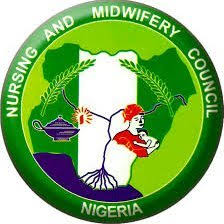Mashood Lawal Lawal’s ordeal began when he was diagnosed of kidney stone in 2020 and a stent was placed in his urinary tract. He fell sick again , and the course of antibiotics he was given didn’t work. He was thereafter misdiagnosed with typhoid and malaria. This continued till he was finally correctly diagnosed of a drug resistant infection.
Lawal, who is also a pharmacist and a member of the World Health Organisation ( WHO) Taskforce of Antimicrobial Resistance ( AMR) Survivors , explained that the various antibiotics he was prescribed were ineffective against the infection as the symptoms kept coming back.
While he was still batting the condition , he got infected with COVID-19.
“I was admitted in the hospital and administered several courses of expensive injectable antibiotics. But the infection persisted even after I survived COVID-19 and was discharged from the hospital,” he said.
While describing his experience as horrifying, he added that the infection was finally resolved after a course of a reserve antibiotic.
Another AMR survivor, who simply wants to be identified as Ade, said he had E. coli and didn’t feel better with the several courses of antibiotics prescribed for him by his doctor. He said this include amoxicillin and ciprotab.
E.coli is a form of bacteria that normally lives in the intestines of people and animals. Most strains of it are harmless but certain types can cause an intestinal infection and potentially life threatening complications.
He said he was able to get better over time but added that doctors ‘could also help by requesting blood culture test soon enough to know, which antimicrobials the infection is sensitive to.
As Nigeria joins the rest of the world to mark this year’s World Antimicrobial Resistance Awareness Week (WAAW), experts have enjoined Nigerians not to misuse or overuse antimicrobials in order to reduce the emergence and spread of Antimicrobial Resistance (AMR) in the country.The theme of this year’s commemoration of the World AMR Awareness Week is “Educate. Advocate. Act Now.”
They described AMR as a global public health and development threat.
The experts also harped on the need for urgent, coordinated action against the threat.
AMR puts many of the gains of modern medicine at risk. It makes infections increasingly difficult or impossible to treat, and makes other medical procedures and treatments – such as surgery, caesarean sections and cancer chemotherapy – much riskier. It turns minor injuries, routine surgeries, or common infections into life-threatening situations,increasing the risk of disease spread, severe illness, disability and death.
SOURCE: DAILY TRUST NEWSPAPER




